Related Research Articles

Terrence Mitchell "Terry" Riley is an American composer and performing musician best known as a pioneer of the minimalist school of composition. Influenced by jazz and Indian classical music, his work became notable for its innovative use of repetition, tape music techniques, improvisation, and delay systems. His best known works are the 1964 composition In C and the 1969 album A Rainbow in Curved Air, both considered landmarks of minimalism and important influences on experimental music, rock, and contemporary electronic music. Subsequent works such as Shri Camel (1980) explored just intonation.

Fluxus was an international, interdisciplinary community of artists, composers, designers, and poets during the 1960s and 1970s who engaged in experimental art performances which emphasized the artistic process over the finished product. Fluxus is known for experimental contributions to different artistic media and disciplines and for generating new art forms. These art forms include intermedia, a term coined by Fluxus artist Dick Higgins; conceptual art, first developed by Henry Flynt, an artist contentiously associated with Fluxus; and video art, first pioneered by Nam June Paik and Wolf Vostell. Dutch gallerist and art critic Harry Ruhé describes Fluxus as "the most radical and experimental art movement of the sixties".
Free jazz, or free form in the early to mid-1970s, is a style of avant-garde jazz or an experimental approach to jazz improvisation that developed in the late 1950s and early 1960s, when musicians attempted to change or break down jazz conventions, such as regular tempos, tones, and chord changes. Musicians during this period believed that the bebop and modal jazz that had been played before them was too limiting, and became preoccupied with creating something new. The term "free jazz" was drawn from the 1960 Ornette Coleman recording Free Jazz: A Collective Improvisation. Europeans tend to favor the term "free improvisation". Others have used "modern jazz", "creative music", and "art music".

Kevin Llewellyn Callan, better known as Stewart Home, is an English artist, filmmaker, writer, pamphleteer, art historian, and activist. His novels include the non-narrative 69 Things to Do with a Dead Princess (2002), and the re-imagining of the 1960s in Tainted Love (2005). Earlier parodistic pulp fictions work includes Pure Mania, Red London, No Pity, Cunt, and Defiant Pose which pastiche the work of 1970s British skinhead pulp novel writer Richard Allen and combine it with pornography, political agit-prop, and historical references to punk rock and avant-garde art.
Neoism is a parodistic -ism. It refers both to a specific subcultural network of artistic performance and media experimentalists, and, more generally, to a practical underground philosophy. It operates with collectively shared pseudonyms and identities, pranks, paradoxes, plagiarism and fakes, and has created multiple contradicting definitions of itself in order to defy categorization and historization.

Alvin Augustus Lucier Jr. was an American experimental composer and sound artist. A long-time music professor at Wesleyan University in Middletown, Connecticut, Lucier was a member of the influential Sonic Arts Union, which also included Robert Ashley, David Behrman, and Gordon Mumma. Much of Lucier's work explores psychoacoustic phenomena and the physical properties of sound.

Henry Flynt is an American philosopher, musician, writer, activist, and artist connected to the 1960s New York avant-garde. He coined the term "concept art" in the early 1960s, during which time he was associated with figures in the Fluxus scene. He later received attention for his anti-art demonstrations against New York cultural institutions in 1963 and 1964.
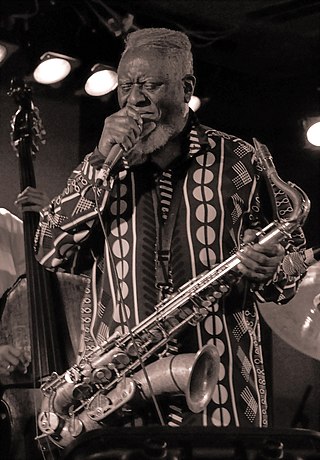
Pharoah Sanders was an American jazz saxophonist. Known for his overblowing, harmonic, and multiphonic techniques on the saxophone, as well as his use of "sheets of sound", Sanders played a prominent role in the development of free jazz and spiritual jazz through his work as a member of John Coltrane's groups in the mid-1960s, and later through his solo work. He released more than thirty albums as a leader and collaborated extensively with vocalist Leon Thomas and pianist Alice Coltrane, among many others. Fellow saxophonist Ornette Coleman once described him as "probably the best tenor player in the world".
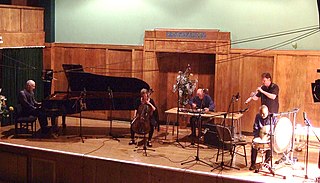
AMM was a British free improvisation group that was founded in London, England, in 1965. The group was initially composed of Keith Rowe on guitar, Lou Gare on saxophone, and Eddie Prévost on drums. The three men shared an interest in exploring music beyond the boundaries of conventional jazz, as in free jazz and free improvisation. AMM never achieved widespread popularity, but have been influential in improvised music. Most of their albums have been released by Matchless Recordings, which is run by Eddie Prévost. In a 2001 interview, Keith Rowe was asked if "AMM" was an abbreviation. He replied, "The letters AMM stand for something, but as you probably know it's a secret!"

Anthony Braxton is an American experimental composer, educator, music theorist, improviser and multi-instrumentalist who is best known for playing saxophones, particularly the alto. Braxton grew up on the South Side of Chicago, Illinois, and was a key early member of the Association for the Advancement of Creative Musicians. He received great acclaim for his 1969 double-LP record For Alto, the first full-length album of solo saxophone music.

Matmos is an experimental electronic music duo formed in San Francisco and currently based in Baltimore. M. C. (Martin) Schmidt and Drew Daniel are the core members, but they frequently include other artists on their records and in their performances, including notably J Lesser. Apart from releasing twelve full-length studio albums and numerous collaborative works, Matmos is also well known for their collaboration with Icelandic singer and musician Björk, both on studio recordings and live tours. After being signed to Matador Records for nine years, Matmos signed with Thrill Jockey in 2012. The name Matmos refers to the seething lake of evil slime beneath the city Sogo in the 1968 film Barbarella.

Ellery Eskelin is an American tenor saxophonist raised in Baltimore, Maryland and residing in New York City. His parents, Rodd Keith and Bobbie Lee, were both professional musicians. Rodd Keith died in 1974 in Los Angeles, California, and became a cult figure after his death in the little-known field of "song-poem" music. Organist Bobbie Lee performed in local nightclubs in Baltimore in the early 1960s and provided Eskelin an introduction to standards from the Great American Songbook as well as inspiring an early interest in jazz music.
High Zero is an annual festival, beginning in 1999, of Experimental Free Improvised Music in Baltimore, Maryland, United States. It is hosted by the Red Room Collective, a volunteer group that sponsors weekly concerts in improvised music and experimental theater, film, poetry, etc. in a side room of Normals Books and Records. Since 2001, the festival has been hosted at Baltimore's Theatre Project space.

For Alto is a jazz double-LP by composer/multi-reedist Anthony Braxton, recorded in 1969 and released on Delmark Records in 1971. Braxton performs the pieces on this album entirely on alto saxophone, with no additional musicians, instrumentation or overdubbing. Although other jazz musicians, such as Coleman Hawkins, Sonny Rollins, and Eric Dolphy, had recorded unaccompanied saxophone solos, For Alto was the first jazz album composed solely of solo saxophone music.
Chet Pancake is an American filmmaker and musician. He is a co-founder of the Red Room Collective, the High Zero Foundation, the Charm City Kitty Club and the Transmodern Festival. He is currently an assistant professor in the Film and Media Arts Program at Temple University and director of the Black Oak House Gallery. His documentary film Black Diamonds (2006), an examination of mountaintop removal mining, has received a number of awards.
Shelly Blake-Plock, is an American entrepreneur and musician.
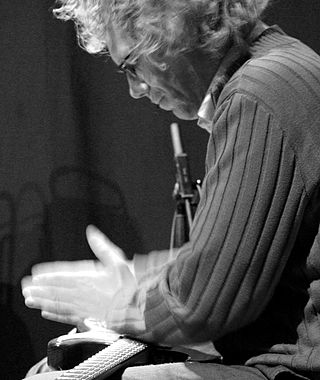
Gunnar Geisse is a German musician, improviser, composer, and interpreter. He plays several string instruments including guitar, banjo, mandolin, and a variety of instruments from Central Asia, among them the Uzbek and the Persian dotâr. Gunnar Geisse has been living in Munich, Germany since 1985.

Helena Espvall is a Swedish–American musician noted for her participation in the post-millennial psychedelic folk and free improv scenes. Her primary instruments are cello, guitar and voice.
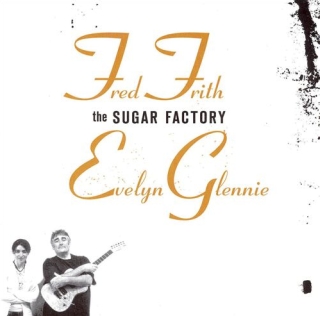
The Sugar Factory is a 2007 collaborative album by English experimental musician Fred Frith and Scottish percussionist Evelyn Glennie. It comprises material drawn from improvisations by Frith and Glennie recorded during the making of the 2004 documentary film Touch the Sound about Glennie, who is profoundly deaf. The album was released in 2007 in the United States by Tzadik Records as part of their "Key Series".
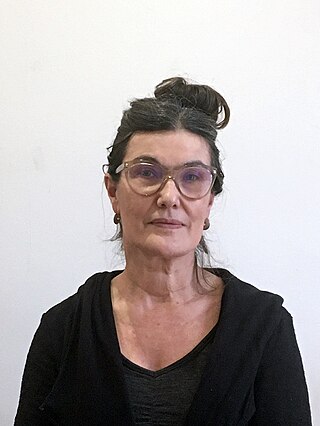
Emmanuelle Waeckerlé is an experimental musician, multidisciplinary artist and composer based in London. Her text scores, publications, and performances explore the materiality and musicality of language while proposing playful encounters with our "interior or exterior landscape and each other."